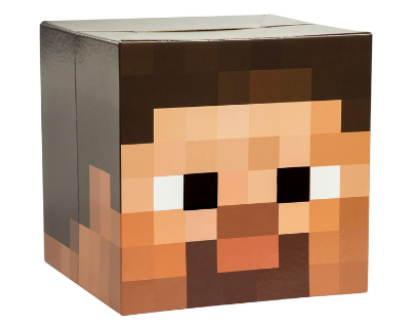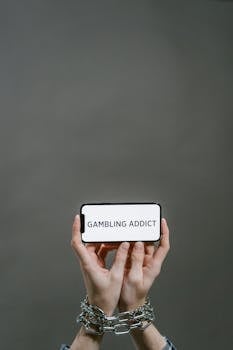Kicking back with an epic mobile RPG after a long day feels like catching up with an old friend. Every choice shapes your path, drawing you deeper into rich worlds that beg for repeat visits.
Whether you’re planning to invest hours or searching for your new favorite adventure, understanding key elements sets you up for lasting enjoyment. The right game can turn casual downtime into an ongoing ritual full of surprise and delight.
This guide highlights tested strategies, direct examples, and proven methods to help you identify and enjoy mobile RPGs that will keep you engaged for the long haul. Let’s dig in and build your ultimate lineup.
Spotting Games That Reward Consistency from Day One
Long-term investment in any RPG starts with the daily rhythm. Games designed for reliability nudge you back with regular challenges, milestones, and incentives—never overwhelming but constantly rewarding momentum.
Imagine a game where every login actually means new discoveries. When yesterday’s effort leads to today’s surprise, you’ll quickly start cueing up the app without hesitation or feeling pressured to binge.
Daily Quests: Building Habits One Step at a Time
Games with compelling daily quests offer players a clear reason to log in regularly. The structure’s familiar—complete a mission, earn immediate rewards, then stack extra value over time.
Picture waking up and thinking, “I’ll knock out that five-minute side quest while my coffee brews.” That becomes your morning anchor, and seeing visible progress builds lasting loyalty to the game.
Clear, achievable goals coupled with evolving challenges keep sessions fresh. If missions shift just enough to stay interesting, players experience lasting enjoyment without burnout or fatigue.
Milestones and Collections: Sustained Motivation Through Goal-Tracking
Well-designed RPGs regularly celebrate the player’s journey with unlockable milestones. This could be rare gear, powerful heroes, or exclusive story chapters tied to consistent engagement.
Let’s say a friend exclaims, “I hit my 30-day streak and unlocked this epic mount!”—that visible achievement sparks conversation and deepens their connection to the narrative world.
Games focused on meaningful progress, with a log of what’s next, help maintain excitement. Reaching a new milestone always comes with both pride and the anticipation of the next challenge.
| Game Feature | Motivation Type | Player Action | What To Try Next |
|---|---|---|---|
| Daily Quests | Routine habit | Short tasks | Set a login reminder |
| Achievement Milestones | Long-term goal | Track progress | Celebrate streaks |
| Hero Collection | Completion drive | Acquire characters | Compare with friends |
| Event Rewards | FOMO | Participate temporarily | Check event calendar |
| Story Unlocks | Narrative | Advance plot | Preview next chapter |
Prioritizing Gameplay Depth Without Compromising Fun
Games that successfully balance depth and accessibility become repeat destinations. You’ll want a system that offers tactical decision-making, not complex busywork that kills the mood.
It’s easy to spot the winners: every menu click brings options, not confusion. You’ll flow from simple actions as a beginner to nuanced strategies as you gain mastery.
Engaging Combat Systems Rooted in Meaningful Choices
Games making you say, “Should I upgrade now or save for a bigger boost?” foster thoughtful play. These debates shape your personal style and prevent sessions from feeling stale.
When the game adds combo attacks or counterplay elements, combat transforms into a rewarding puzzle instead of simple button-mashing. Remember your options, anticipate new tricks, rethink your approach as enemies evolve.
- Test different party assemblies to reveal hidden synergies—knowing what fits makes every battle feel earned and unique.
- Time skill activations to maximize impact in tight spots. Try, “Use my healer’s special right before the big boss attacks.”
- Swap in fresh equipment as soon as stats plateau, otherwise your progress will feel stagnant.
- Review recent losses and tweak tactics, instead of blaming bad luck.
- Play event challenges with new constraints, so your habits don’t turn stale or robotic.
Switching up your core strategy based on enemy or event design resparkles each session—no autopilot needed. Real progression shows in your day-by-day decisions.
In-Game Economies That Respect Player Investments
Healthy RPG economies reward effort, not just luck or spending. Games that let you earn meaningful rewards through smart choices inspire real attachment.
Tracking resource flow—like earned currency, equipment drops, or crafting supplies—lets smart planning snowball. Players learn to budget, choose investments, and reap compounding benefits.
- Log in to spend daily bonus gold immediately, so it keeps stacking up over time.
- Trade surplus items with friends if the system allows. Give unused gear and get the piece you actually need.
- Check vendor shops for rare sales. Timing big purchases saves effort spent on grinding for lesser rewards.
- Hoards rarely win—spending at the right moment grows your power faster than sitting on everything.
- Upgrade low-cost assets for early boosts; reserve high-end gems for key breakthroughs later on.
Test economic systems by buying and selling something cheap early on—learn the rules risk-free before making big bets.
Storytelling That Feeds Curiosity and Retention
Narratives in mobile RPGs can either blend into the background or become the heartbeat of the experience. A well-crafted story turns every session into a chapter you want to read before bed.
When characters reference your choices or long-term goals in their dialogue, you’ll naturally want to check back for the next reveal, creating a habit loop fueled by curiosity.
Dynamic Worlds That Evolve with Your Actions
Games with evolving settings keep stories interesting. Towns might rebuild after your victories, or enemies develop new tricks. This “living” world strategy mirrors serialized TV where events ripple across weeks.
Seeing consequences play out directly motivates repeat visits. Consider this: after saving a village, its shop offers new items—actual proof your presence matters and is remembered.
Designers often drop hints about changes ahead. A clever dialogue line foreshadows a twist, giving you a tangible reason to stay engaged and look for subtle details.
Memorable Characters Who Extend the Experience Beyond Gameplay
A relatable cast, quirks and all, anchors players emotionally. When a favorite hero pipes up with distinct voicework or a surprise quest, you’ll recall their story as vividly as a favorite sitcom character.
People truly connect in group chats by sharing, “I can’t believe what happened to [character] yesterday—have you reached that chapter yet?” Shared discoveries build genuine camaraderie.
Games leaving character backgrounds mysterious until certain milestones create ongoing anticipation. Unlocking secrets one at a time becomes its own emotional mini-game.
Evaluating the Balance Between Investment and Reward
Choosing a mobile RPG should never feel like a gamble. Comparing what you invest—time, effort, emotion—to the expected rewards makes the journey sustainable, not draining.
Look for games where quick wins are frequent, but long-term triumphs require planning. You’ll spot fair reward systems when you realize you’re accomplishing little goals even in short sessions.
| Time Spent | Immediate Reward | Long-Term Benefit |
|---|---|---|
| 5 minutes | Daily log-in loot | Streak bonuses add up |
| 30 minutes | Finish world quest | Unlocks harder dungeons |
| 2 hours (weekly) | Guild event rewards | Prestige with community |
The table above shows how bite-sized sessions build toward bigger achievements—evidence that mobile RPGs respect both your time and your ambition.
Learning from Community-Driven Success Stories
Mobile RPGs can echo the feel of neighborhood sports leagues. When your guild celebrates a hard-won victory or commiserates after a group loss, solo play becomes shared memory.
Several top games exploded because players genuinely cared about helping each other, strategizing together, and sharing tips. Community support often transforms a good title into a lasting cultural touchstone.
Consider someone who posts a screenshot of their “impossible win.” Their excitement prompts advice, new friendships, and motivation for others. “I tried your tip, and it finally worked!”—it’s a virtuous cycle.
Forums or Discord channels foster cultures where nuanced tips, not just basic info, get circulated. The best groups share annotated screenshots, annotated walk-throughs, and host newcomer challenges.
If you’re new, join in early—even just saying, “Any advice for taking down the Flame Boss on hard mode?”—can net you new teammates and private tips that accelerate your progress.
Weighing Monetization Models and What Fairness Looks Like
- Pinpoint whether a game limits premium purchases to cosmetics (harmless personalization) or if progression requires spending—fair games make wallet choice optional.
- Test ways to earn paid currency in-game. If events and milestones pay out premium items (even slowly), you’re more likely to enjoy free play without resentment.
- Track how quickly ads or microtransactions appear after install. Games respecting your space (and wallet) early on will probably keep that tone long-term.
- Audit what real value bundles offer—cosmetics, quick progress, or unique characters. Sound monetization means bundles save time, not force wallet dependency.
- Create a spending limit rule for yourself from day one—like “$1 for every 10 hours of play”—to keep fun and finances aligned.
- Pause before any impulse purchase, then try to earn the same item organically; custom earning routes add pride to every acquisition.
Monetization transparency blends with fair play. If you spot a system that lets you win without paying, or gives clear free-to-play pathways, that’s a sign you’re in good company.
Players committed to these review steps avoid buyer’s remorse. Your confidence in a game’s fairness will have a direct effect on your long-term satisfaction and loyalty.
Setting Yourself Up for Enjoyment and Sustainable Progress
- Pick games with active developer updates—new content signals care and longevity
- Look for responsive support or visible Q&A forums when issues arise
- Try both solo and co-op gameplay options to fit your evolving needs
- Limit play sessions to avoid fatigue and maintain anticipation
- Introduce friends for extra motivation and richer tactics
- Rotate between story, PvP, and social events for well-rounded fun
Committing to consistent routines, rather than marathoning everything, transforms mobile RPGs from fleeting fixes to rewarding habits you’ll look forward to each week.
When friends play together and track shared victories, game nights become the highlight instead of a one-off distraction.
Choosing Mobile RPGs With Confidence and Vision
The mobile RPG landscape bursts with options, but focused criteria steer you toward lasting satisfaction. Look for experiences that respect your time, spark curiosity, and grow with you over months, not just days.
Your enjoyment multiplies when you join lively communities and seek out games that encourage healthy habits, not just instant wins. Balancing ambition and fun leads to progress you truly value.
RPGs built for longevity offer creative expression, friendship, and challenge at your pace. Taking time to explore systems and experiment ensures you’ll always have new goals to chase.
Plan your approach like building a garden: tend it daily, welcome surprises, and compare notes with fellow gardeners. The journey you forge in these worlds becomes more memorable than any single moment.
With these principles in hand, you’ll not only pick the best mobile RPGs for long-term play—you’ll continuously rediscover why these games matter so much in the first place.

